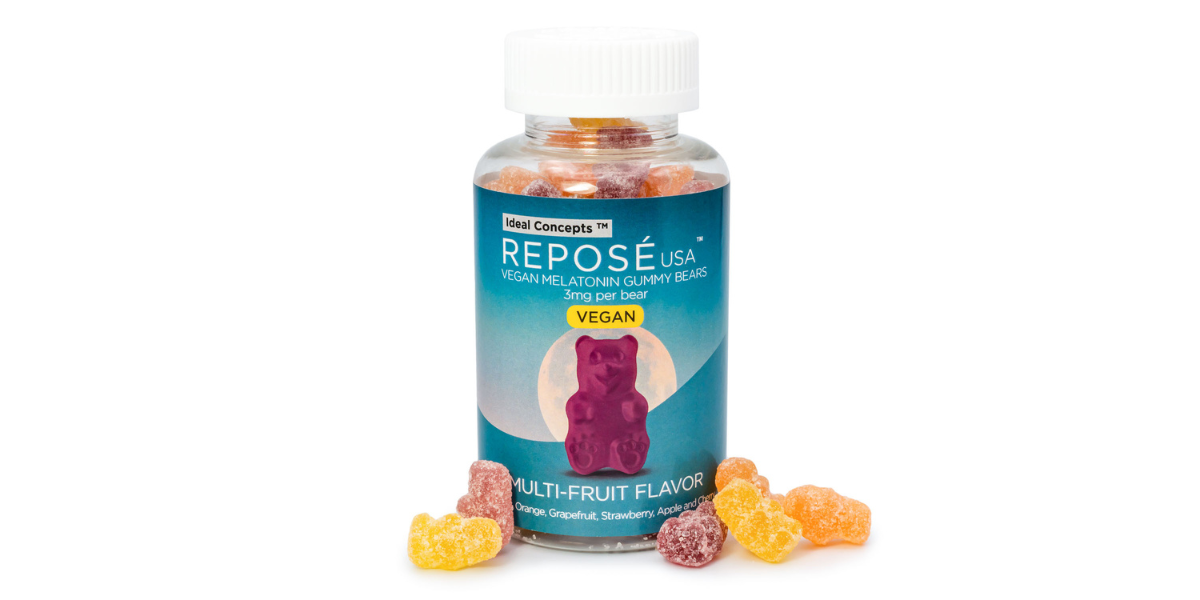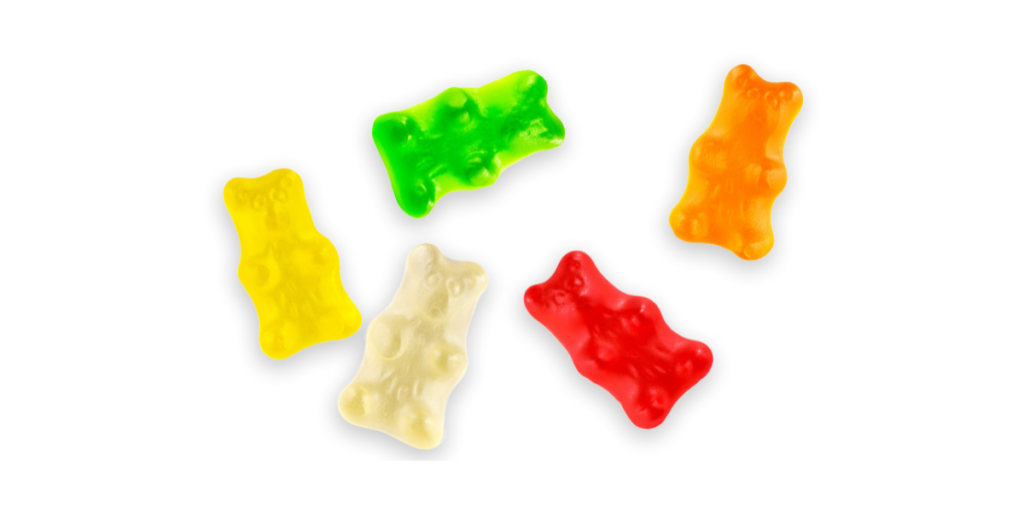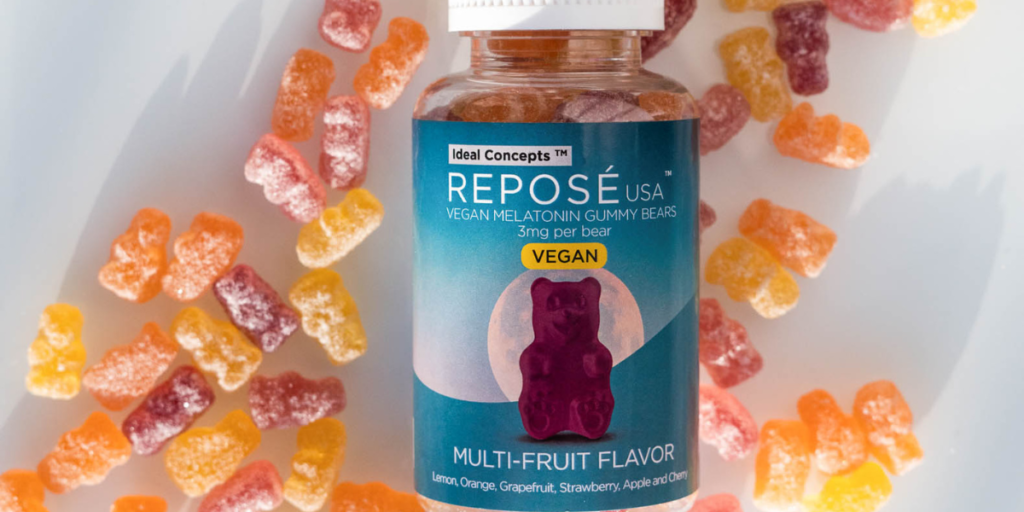Key Takeaways:
- Understanding Melatonin Expiration: Learn how melatonin’s potency decreases over time and how to recognize signs of degradation.
- Safe and Effective Storage Tips: Get practical advice on how to properly store melatonin to ensure its freshness and effectiveness.
- Repose’s Commitment to Quality: Discover why Repose Vegan Melatonin Gummies are crafted for reliable results with premium ingredients.
Imagine winding down after a long day, ready to drift into a peaceful sleep, only to realize your trusty melatonin gummies might have passed their prime. Sleep isn’t just a luxury—it’s a cornerstone of good health—and when your go-to sleep aid isn’t effective, it can throw everything off balance. But how can you know if your melatonin is still up to the task?
At Repose, we’re passionate about supporting your wellness journey with science-backed solutions like our Vegan Melatonin Gummies. Crafted with premium, plant-based ingredients and designed for reliable, restful sleep, our gummies represent the gold standard in sleep aids. When it comes to quality, potency, and trust, we don’t cut corners—because you deserve the best.
In this article, we’ll walk you through everything you need to know about melatonin expiration, how to check for freshness, and what to do if your supply is past its prime. Let’s ensure your nights are always restful and worry-free.
What Is Melatonin And Why Do We Use It?
Melatonin is a hormone naturally produced by the body, primarily in the pineal gland, to regulate the sleep-wake cycle. Often called the “sleep hormone,” its levels increase in the evening to signal the body to wind down for rest. Beyond its natural form, melatonin is widely available as a dietary supplement, commonly used to address sleep issues like insomnia, jet lag, or disruptions from shift work. These supplements mimic the effects of natural melatonin, helping users fall asleep faster and enjoy more restful sleep.
Melatonin supplements have become a trusted solution for managing occasional or ongoing sleep challenges. However, like all products, melatonin has a shelf life, raising an important question: does melatonin expire?
Rest easy with Repose Vegan Melatonin Gummies—crafted for peaceful sleep and made with premium, plant-based ingredients. Try them today!
Reclaim your restful nights with Repose Vegan Melatonin Gummies—crafted from premium, plant-based ingredients for effective sleep support. Don’t wait, start your journey to better sleep today!
Does Melatonin Expire? The Short Answer
Yes, melatonin supplements do expire. Like most medications and dietary supplements, melatonin has a shelf life indicated by an expiration date printed on the bottle. This date is typically set by the manufacturer to ensure the product maintains its potency, safety, and effectiveness up to that point.
However, an expired melatonin supplement doesn’t necessarily become harmful. Instead, it may lose its potency over time, meaning it might not work as effectively to help you sleep. Factors like storage conditions can also affect how quickly melatonin degrades, so an expired supplement stored in a cool, dry place might still retain some of its efficacy for a short while.
But here’s the bottom line: while taking expired melatonin may not pose significant risks, it’s always best to use a fresh product for reliable results.
How To Check If Your Melatonin Is Expired
Checking if your melatonin is expired is simple and involves a few key steps:
- Look at the Expiration Date: The most straightforward way is to check the expiration date printed on the packaging. This date is typically found on the label or the bottom of the bottle. If the date has passed, the manufacturer can no longer guarantee the product’s potency.
- Inspect the Appearance: If your melatonin tablets or capsules look discolored, crumbled, or have a strange texture, it could be a sign that they’ve gone bad. Some melatonin gummies might also become hard or sticky when expired.
- Check for Odor or Taste: For melatonin in liquid form or gummies, pay attention to any unusual smell or taste. A sour, rancid, or strange odor could indicate spoilage.
- Consider the Storage Conditions: If your melatonin has been stored in a hot, humid, or light-exposed environment, it might degrade faster than the expiration date suggests. Proper storage is key to maintaining the product’s longevity.
If you notice anything off, it’s better to err on the side of caution and replace the product with a fresh one.
What Happens If You Use Expired Melatonin?
Melatonin is a widely trusted aid for promoting restful sleep, but like all supplements, it has a shelf life. While expired melatonin isn’t typically harmful, its effectiveness and safety may be compromised over time. Understanding the potential implications of using expired melatonin can help you make informed decisions about whether to continue its use or replace it with a fresh supply.
Ineffectiveness Over Time
As melatonin ages, its active ingredients degrade, making it less effective at promoting sleep. This loss of potency means that you might not experience the same calming effects you once relied on. For those using melatonin to combat sleep issues such as insomnia or jet lag, this can lead to disappointment and a disrupted sleep routine.
Potential For Contamination
Though rare, supplements stored improperly or used far past their expiration date can become contaminated. This can happen if the bottle is exposed to moisture, heat, or sunlight, leading to bacterial or mold growth. In such cases, using the product could result in mild reactions like digestive discomfort, even if melatonin itself is generally safe.
Inconsistent Results
Expired melatonin may cause unpredictable results, working on some nights and failing on others. This inconsistency can be particularly frustrating for individuals who depend on melatonin for a steady sleep schedule. Rather than supporting a reliable routine, an expired supplement might add more uncertainty to your sleep patterns.
Better Results With A Fresh Supply
To ensure consistent effectiveness and avoid potential issues, replacing expired melatonin with a fresh product is the best course of action. A current supply guarantees that the active ingredients are potent and the supplement is safe to use, giving you peace of mind and a better chance at restful sleep.
How To Properly Store Melatonin To Extend Its Shelf Life
Storing melatonin correctly is essential for preserving its potency and ensuring it remains effective over time. Exposure to environmental factors like heat, moisture, and light can degrade the active ingredients, reducing the supplement’s ability to aid your sleep. With proper storage techniques, you can maximize the shelf life of your melatonin and protect your investment.
Store In A Cool, Dry Place
Melatonin should always be kept in a location that is free from excess heat and humidity, as these factors can significantly accelerate its degradation. A pantry or drawer in a temperature-controlled room is ideal for maintaining the supplement’s stability. Avoid storing it in bathrooms or kitchens, where steam and fluctuating temperatures can introduce moisture into the container.
Protect From Direct Sunlight
Sunlight exposure can break down the active compounds in melatonin, diminishing its effectiveness. To prevent this, store the bottle in a dark, shaded area, and keep it in its original opaque packaging whenever possible. This simple precaution ensures that light-sensitive ingredients remain intact and functional over time.
Keep The Container Tightly Sealed
After every use, ensure the container is securely closed to minimize exposure to air. When left open, air can introduce contaminants and contribute to the breakdown of melatonin’s active ingredients. A tightly sealed bottle also helps to keep moisture and airborne particles from affecting the product.
Follow Manufacturer’s Storage Guidelines
Different formulations of melatonin, such as liquids or gummies, may require specific storage conditions for optimal preservation. Always read and adhere to the manufacturer’s instructions, which might include recommendations like refrigeration or avoiding certain environments. These guidelines are tailored to ensure the longevity and effectiveness of the product.
Use Additional Storage Protections In Extreme Environments
In areas with high humidity or heat, additional measures may be necessary to preserve your melatonin. Airtight containers or silica gel packets can help absorb moisture and maintain a dry environment for the supplement. These extra steps are especially useful in climates where standard storage conditions are hard to achieve.
When Should You Replace Your Melatonin?
Replacing your melatonin at the right time is crucial to ensure its effectiveness and safety. Over time, exposure to air, moisture, and other environmental factors can degrade the supplement, reducing its ability to help you achieve restful sleep. By following a few practical tips, you can avoid relying on an outdated product and maintain consistent sleep support.
Check Expiration Dates Promptly
Always check the expiration date as soon as you purchase melatonin to understand how long the product will remain effective. Marking this date on a calendar or setting a reminder can help you avoid inadvertently using an expired supplement. Staying proactive about expiration dates ensures you’re not relying on a product that has lost its potency.
Replace Open Bottles Within A Year
Even if the expiration date is further away, it’s best to replace an open bottle of melatonin within a year. Exposure to air, light, and moisture each time the bottle is opened can gradually degrade the supplement’s active ingredients. By sticking to this timeframe, you can ensure you’re using a product that still offers reliable sleep support.
Trust Your Senses For Quality Checks
If your melatonin smells unusual, appears discolored, or has an altered texture—such as crumbly tablets or sticky gummies—it’s time to discard it, regardless of the expiration date. These changes can indicate degradation or contamination, both of which compromise the safety and effectiveness of the product. Trusting your senses is a simple but effective way to determine when replacement is necessary.
Err On The Side Of Caution
If you’re ever uncertain about the safety or effectiveness of your melatonin, it’s always better to replace it with a new bottle. A fresh product ensures you’re not taking unnecessary risks with a potentially compromised supplement. Prioritizing caution guarantees both peace of mind and consistent results.
Adapt To Your Usage Patterns
For those who only use melatonin occasionally, purchasing smaller bottles is a practical way to reduce waste. This approach increases the likelihood of finishing the product before it expires or begins to degrade. Tailoring your purchase size to your usage habits helps ensure you’re always using fresh and effective melatonin.
Final Thoughts
Melatonin can be a helpful tool in managing sleep issues, but like any supplement, it doesn’t last forever. Understanding whether melatonin expires, how to check its condition, and how to store it properly ensures you’re using a product that is both safe and effective.
While expired melatonin is unlikely to cause harm, it’s always best to prioritize freshness for consistent results. With proper storage and attention to expiration dates, you can make the most out of your melatonin supplements.
Read also:
- The Benefits of Melatonin Gummies for Kids with Sleep Challenges
- How Long Do Melatonin Gummies Last in Your System?
- Vegan Melatonin Gummies That Support Better Sleep
Frequently Asked Questions About Expiration Of Melatonin
How long is melatonin effective after the expiration date?
Melatonin supplements can remain somewhat effective for a few months beyond their expiration date if stored properly. However, the potency decreases over time, making it less reliable for consistent results.
Can melatonin go bad even before the expiration date?
Yes, improper storage conditions like heat, humidity, or exposure to sunlight can cause melatonin to degrade faster, potentially rendering it less effective before the printed expiration date.
Does melatonin lose its flavor or texture when expired?
Expired melatonin gummies may harden or become sticky, and tablets might crumble or discolor. These changes can signal that the product has degraded.
Is expired melatonin harmful to children?
While it’s unlikely to be harmful, expired melatonin may not provide the desired effect, which could lead to frustration for both the child and caregiver. It’s safer to use a fresh product.
Does liquid melatonin expire faster than tablets or gummies?
Liquid melatonin often has a shorter shelf life and is more susceptible to contamination. Always check for changes in smell, color, or consistency before use.
Can storing melatonin in the fridge extend its shelf life?
Refrigeration can help extend the life of liquid melatonin or gummies in warm climates, but tablets typically do fine in a cool, dry place.
What’s the difference between expired melatonin and a placebo?
Expired melatonin might act similarly to a placebo since its potency decreases. It may provide inconsistent or no results, unlike a fresh supplement.
Do melatonin supplements come with a “use by” recommendation?
Yes, most manufacturers recommend using the product within a certain timeframe after opening, usually six to twelve months, even if the expiration date is further out.
Can expired melatonin trigger allergies or side effects?
While unlikely, degraded ingredients in expired supplements might cause mild irritation or reduced tolerance in sensitive individuals.
What should you do with expired melatonin?
Dispose of expired melatonin responsibly by following local waste guidelines. Avoid flushing it down the drain, as this could harm the environment.
Sources:
- Day, R. (2013). Off-label prescribing. Australian Prescriber, 36(6), 182–183. https://doi.org/10.18773/austprescr.2013.075
- Pawar, R., Coppin, J., Khanna, S., & Parker, C. (2024). A Survey of Melatonin in Dietary Supplement Products Sold in the United States. Drug Testing and Analysis. https://doi.org/10.1002/dta.3823
- Sanders, D. C., Chaturvedi, A. K., & Hordinsky, J. R. (1999). Melatonin: Aeromedical, Toxicopharmacological, and Analytical Aspects*,†. Journal of Analytical Toxicology, 23(3), 159–167. https://doi.org/10.1093/jat/23.3.159










